With the lifting of travel and social restrictions imposed in fear of covid-19, migration and especially illegal migration has ramped up from crisis regions, especially from Islamic countries, directed to Europe from the Southern borders of Hungary to Spain. People are chasing their dreams, often risking their own lives, in order to start a new life in a completely different country, in a completely different culture and lifestyle.
Are there similarities between European and American Muslims? Is there one faith and one single way of following it? Are clashes, like the tension and violence experienced in Spain, inevitable? Are Muslim communities more prone to authoritative power?
István Vass interviewed distinguished Georgetown University professor John L. Esposito.
Professor, you have been involved in Islam for almost 50 years. You have published at least that many books on the Muslim faith. You have participated in countless conferences on the subject. Do you think there has been any progress in the Islamic faith during this time?
Islam, like Christianity and other World Religions has had a long diverse history as a religion and civilization. During the Dark Ages in the West, Islamic Civilization flourished as a religion, empire and a civilization in philosophy, mathematics including algebra, as well as education, science, medicine and art. Its legacy informed the resurgence of Western civilization in areas of theology (Albert the Great, Thomas Aquinas and others), philosophy, mathematics, science, medicine and art.
Today, Islam and Muslims globally are very diverse. There are modern reformers, traditionalists and fundamentalists. If you look at Christianity today as in the Muslim world there is a great diversity with regard to the role of religion and religious pluralism and tolerance in politics and society. Let me tell you one of my interesting experiences regarding this topic. Often, our Center runs and participates in programs and conferences and has a project on Islamophobia, anti-Muslim attitudes and behaviors that sometimes can lead to hate crimes. At one of the conferences a scholar from Poland said: “We don’t have many Muslims in Poland, but we do have Islamophobia.”
In the Muslim world tremendous diversity exists religiously, politically well. Even if we say it’s there is one faith of Islam, there are multiple interpretations of Islam and groups. You not only have Sunni and Shia, but you have various and diverse religious leaders. So, that if you look at the religious leaders in terms of their faith positions, whether it’s with regard to religion or with regard to geopolitics, they are very diverse.
I think that that’s one of the things that we need to really realize: there is no monolithic Islam just as there is no monolithic Christianity, Judaism, Hinduism or Buddhism.
According to your opinion do we have to fear Islam, will there be any clash of civilizations between the Christian West and the Islamic world as your fellow professor, Mr Huntington predicted some thirty years ago?
People ask me over the years, the same question: “Is there going to be a global clash”? I knew Professor Samuel Huntington, whose book The Clash of Civilizations had an impact globally. We were roughly of the same generation and in fact participated in a debate in Saudi Arabia. I’ve done a lot of work on this topic. I co-authored a book with Dalia Mogahed, Who speaks for Islam, what a billion Muslims really think.
During the writing what we found – when we looked at the worldwide Gallup polls provided us with data – was that the vast majority of Muslims, in contrast to Muslim extremists and terrorists, in fact admired the West for its education, technology and freedoms, but they felt that the West in general looked down on Arabs and Muslims, had a negative attitude towards them.
If you look today at the West in terms of its politics and the role of religion, religion plays more of a diverse role than one might think. The Christian far right appeals to its brand or interpretation of Christianity, but you shouldn’t confuse it with more mainstream Christianity.
Today, even if Huntington’s prediction has proven not to come true, there are signs that different cultures are having difficulty getting along. In Europe, in the past few years there have been extremist attacks – I think I don’t need to mention them to you. A lot of ordinary people think about Islam and are frightened.
First of all, as I have said, religions and civilizations have taken many diverse forms in history with many and diverse kinds of people and kinds of religious attitudes, beliefs and cultures. Sam (Huntington) generalized in his use of language simply using the word Islam all the time. For example, he said Islam has bloody borders and bloody innards. What he should have said is, Muslim countries have bloody borders.
There have been bloody borders or clashes between countries like Sudan and Egypt, and Syria, Iran and Iraq etc. They were and are all Muslim countries but the conflicts were not and are not primarily religious but rather political.
Then he went on to write about what was going on in America at the time, with the increase and rise in the population of American citizens from Hispanic cultures and the extent to which Spanish had become the second language. The US is a multicultural society. For Sam, this was a cultural threat.
Media is also important and responsible for how they cover events. I’m sure that you are familiar with this phrase, “if it bleeds it leads″. The media is market-driven and so they emphasize conflicts, violence and terrorism. While this is important, if they do not cover the broader context, what a majority of Muslims believe and how they lead their lives, then this contributes to why people may fear Islam?
Media studies, for example by Media Tenor, have shown that often the vast majority of coverage is on extremism and violence and only a small percentage on what the vast majority of Muslims believe, want out of life and desire to do.
Let’s move on the other burning issue, immigration and difficulties of integration. The growing influx of people from the Islamic world to Europe, that we witnessed from the Nineteen-Sixties, especially more recently the latest rush of mass migration.
I think one of the things we need to realize as a general point, in many countries where there has been significant immigration, the first reaction was to reject the immigrants. When European Catholics came to the United States, the United States was primarily and overwhelmingly white Anglo-Saxon Protestant.
Therefore, the Catholics were suppressed by the Protestant majority.
Exactly, the Catholics came from various parts of Europe; we were viewed as laborers, second-class citizens. In a sense, nowadays some or many Europeans may think of the Muslim immigrants: Okay, your language, customs, or religious beliefs and practices are different from what we are used to.
I know that you for example, an Italian-American, your community also suffered some atrocities.
We had that problem in our country when World War II came, you then had another layer of discrimination towards Italians, Germans and also Japanese Americans. There was also the emphasis on and presumption in our media and movies at the time that, in fact, Italians are overwhelmingly mafia-oriented. Just look at movies made back then until the nineties. The bad guy was very often a person who looked like an ethnic Italian. This was reinforced or reflected in The Godfather and later the Sopranos.
Do you think all the theories about the future Arabian caliphate in Europe the so-called Eurabia, are nonsense? Or is there some reason and some truth in them? Or it is simply the fear that we feel towards the strangers in our continent?
The fear comes from ISIS. It also comes from the actions before that of Al-Qaeda. But if you think about it, while ISIS and Al Qaeda, were terrible terrorist movements, they represent a very, very small percentage of the 1.8 billion Muslims in the world.
In fact, the main victims of these terrorists – causing all of the immigration that took place – really resulted from what the extremists have done.
On the other hand, we don’t look at the way in which many people, certainly in the Muslim world see this reality from another point of view. If you’re living in the Middle East, you can look and say: “Well, wait a minute, the West, and particularly America, has been an expansive neocolonial power as seen in its invasion and occupation of Iraq and Afghanistan and a supporter of authoritarian Muslim regimes in Egypt, Tunisia, and Saudi Arabia etc.
Yes, and a lot of things were destroyed especially in the Iraq campaign, during the American occupation.
Can you see that? That’s the difficult situation.
In my latest article, I included a quotation from a documentary with an ex-Islamist about the question why the Muslim religion cannot be reconciled with the values of democracy. He responds like this: “A devout Islamist cannot accept that a man, let alone a woman, can live the way he wants. There are certain divine laws – such as Sharia. What is your insight, does Islam ignore democratization, rule of law, gender equality, and so on?
My first comment on that is, if you are going to do a video on militant extremist fundamentalism and Islam, what do you do? You get somebody who was or is a terrorist. Now he says, well I’m no longer a terrorist. So now we let him speak, and he will tell you what Islam is all about. We are relying on the statements of a person, who a couple of months ago may have killed or tortured on command.
Then what do you think, if we want to know the ordinary Muslim’s perception about the above-mentioned topics, to whom do we have to listen?
Again, major polls by reputable organizations Gallup, PEW, and others are important, if they’re done well, because you then are hearing the voices of a majority of people. In the old days, what did you have or did we rely upon? You had experts, like Huntington, like me, and many other experts talking with the authorities and media about what all these people think in those countries.
When you look at the major polling, they basically say, as I said a little bit earlier, the majority of Muslims want, what most people want. They want freedom, economic development, security and a government that’s not authoritarian.
But can you see this kind of a good deal in the Middle East in the recent past and today? Instead we see authoritarian governments. Is it because of the people or their religion? No. It’s because of these authoritarian non-democratic governments countries.
Yes, and tribalism is still significant in these Middle Eastern societies. Loyalty to tribes and clans is one of the most important building blocks of the power.
One other thing, I have to point out. Even President George W. Bush said, and I think he was right, at a certain point, he said that one had to acknowledge that presidents before him, whether they were Democrats or Republicans, when it came to promoting democracy, practiced democratic exceptionalism in the Middle East, i.e., we never tried to promote it. Look at policy today, it is the same.
Indeed, we can see that Saud-Arabia and the other emirates are America’s best allies in the region. They are backed militarily and other means by the US to keep up their regimes.
Just another example: there was a coup in Egypt back in 2011. You saw tens of thousands of people in prison. Human rights studies showed you what’s going on. I know of people who have died in prison, and Western powers are dealing with these bloody regimes. To think that the people want that, that’s not the case. It’s that the royal families, dictators, supreme leaders, depending on the country, they basically say, this is their country. Tell me, how many countries there have open and free elections?
Approaching the last part of our interview, I would like to ask about the situation of Muslim Americans. I’ve just found a figure that there are 3.5 million people in the United States who declare themselves to be Muslims. It’s such a low number if you compare to the roughly 334 million total population.
I think that it’s more like maybe five or six million that is the real number but still not much in this enormous population.
Certainly not. Even if they are a super minority, can they integrate into the mainstream society?
When you talk about the question if Muslims can adapt, you have to be specific about them as a group. We have Muslim immigrants from the Middle East, and South-east Asian as well as Muslims who are refugees that came to the United States in the last 100 years. And, naturally, we have African-American Muslims. Many of them, were descendants of African slaves.
Educationally most of the Muslims, have a higher rate of education and excellence than any other groups. Nationwide. the Muslims are second to American Jews when it comes to excellence in education.
This is the second or the third generations we are talking about.
What about their life circumstances? Can they afford, for example the high academic study fees to their children?
Actually, I’ve looked at this in a case study, about the question of Muslim immigrants in the West. Typically, in the American example, I found that they are economically and in general doing well in society.
How do they feel about the American nation; do they want to be part of the American dream? Shouldn’t they be afraid of racism, discrimination?
In fact, often some of the latest polls show that American Muslims do feel the discrimination and there are other negative things that affect their lives. But they are actually more positive about their future than many other Americans.
That means they can adapt. Can we say, in this sense, the ’melting pot’ is working?
Yes, definitely we can state that.
Still, there are some heavy clashes between the majority and minorities and even among minority groups in the USA. You mentioned before the extreme right is on the rise. Correct me if I’m wrong, but your country has been on the verge of civil war in the past decade. Whether this is just an exaggeration of the media, or not, there is a deep divide in the American society.
Yes, that’s the great problem. We have so many weapons out there. We’re now even getting legislation being pushed in Florida, in Texas, where they want to have no regulations, and people should be able to, anybody should be able to carry a concealed weapon. In the streets, in malls, or on university campuses.
I understand school shootings in America are at an all-time high. I have seen a map which shows these attacks just since January, there have been seven school shootings, that resulted in injuries or deaths.
Do you know how the majority of the people react to this incident? Many Americans want much stricter gun control legislation in terms of who can purchase a gun and believe that AK-47s, assault weapons should be forbidden.
Many other Americans say “No, it’s not about guns at all.” They also believe their belief and interpretation is rooted in America’s creation, history and constitution.
What about the Muslim community? Is there a particular reason that American Muslims feel unsafe or discriminated?
We have had a significant problem with anti-Muslim violence and attacks and in fact a number of Sikhs have been killed because the attackers thought they looked like Muslims.
Is it possible to wear a hijab or there is regulation for it?
In general, women are free to wear it; there certainly has been a good deal of discrimination towards women who wear a hijab, but it’s not illegal. There are certain institutions and jobs, where people wouldn’t be hired if they wear one.
I’ve done a lot of consulting on legal cases, and conversations with lawyers including the head of a significant law firm, who basically said
over the last 20 years, on a number of occasions, a Muslim often did not get a fair hearing in our courts due to this kind of bias.
What do we know about the Muslim women in the US? Do they have more opportunities, more freedom, than in strict Islamic countries?
If you look at the data, that I mentioned, not only Muslim males do better than many other Americans. Muslim females often are as educated as men and increasingly have positions in America in Congress, law firms, media, education, and business. –
It seems they take these chances, they get a better education, and I presume they will get better job opportunities. What about this phenomenon, that when one gets more education, they end up having less children? Is this observation valid to the Muslim families living in the US?
In my experience, some families are large, but in many others they are not; it varies. You asked earlier is there any fear in their community. They think about America is good place to be where the well-being is attainable.
Finally, I would like ask a personal question, if you don’t mind?
Go ahead!
I have read that you wanted to be a priest, ell me more about this. How did you end up to studying Islam?
Yes, I was in a monastery. After that, I became a young Catholic theologian. When I went to Temple University for a doctorate, it was to be in Catholic Studies. I had no interest in studying Islam. I only agreed to take one course because the PhD was in world religions, and it was suggested in addition to my courses in Hinduism and Zen Buddhism, I take a course. I thought and intended that I would be a married Catholic professor, theologian. However, I became fascinated to discover that Islam and Muslims could also be traced back to the family of Abraham. I had been well aware of the Judeo-Christian tradition but now realized that there is a Judeo-Christian-Islamic tradition. The Quran and Islam accept all the biblical prophets. Jesus is seen as a great prophet. Indeed common Muslim names are Issa (Jesus), Musa (Moses) and Maryam (Mary).
John L. Esposito Distinguished University Professor is professor of Religion and International Affairs and of Islamic Studies at Georgetown University.
He is Founding Director of the Alwaleed Center for Muslim-Christian Understanding in the Walsh School of Foreign Service. During the 1970’s he lived and studied in Lebanon, in the Middle East Center for Arab Studies.
Past President of the American Academy of Religion, Middle East Studies Association of North America, and the American Council for the Study of Islamic Societies. Esposito has served as consultant to the U.S. Department of State and other agencies, European and Asian governments, corporations, universities, and the media worldwide. He is a member of the World Economic Forum’s Council of 100 Leaders and the E. C. European Network of Experts on De-Radicalisation and an ambassador for the UN Alliance of Civilization.
His more than 50 books include: The Future of Islam, What Everyone Needs to Know about Islam, Islamophobia and the Challenge of Pluralism in the 21st Century, Who Speaks for Islam? What a Billion Muslims Really Think (with Dalia Mogahed), Unholy War: Terror in the Name of Islam, Islam and Democracy (with J. Voll), The Islamic Threat: Myth or Reality?, and Islam and Politics, Political Islam: Radicalism, Revolution or Reform?.
He is Editor-in-Chief of Oxford Islamic Studies Online and Series Editor of the Oxford Library of Islamic Studies, and is Editor-in-Chief of The Oxford Encyclopedia of the Islamic World, The Oxford Encyclopedia of the Modern Islamic World, The Oxford History of Islam, The Oxford Dictionary of Islam, The Islamic World: Past and Present, and Oxford Islamic Studies Online. A native of Brooklyn, N.Y., he currently resides both in Washington and Florida with his wife, Dr. Jeannette P. Esposito.

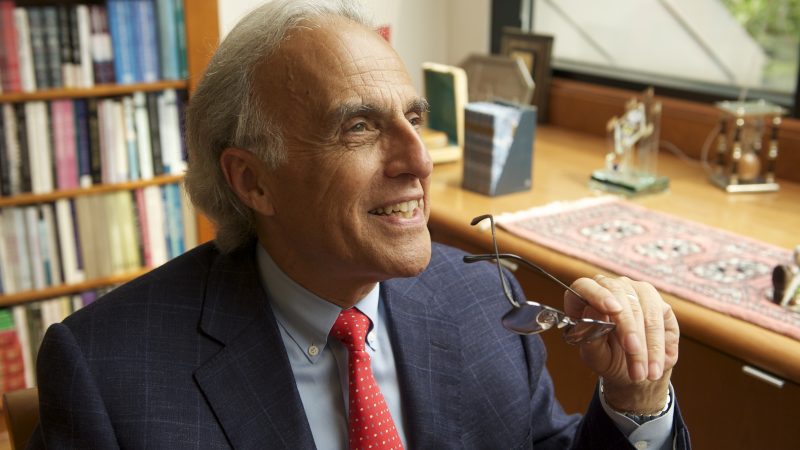
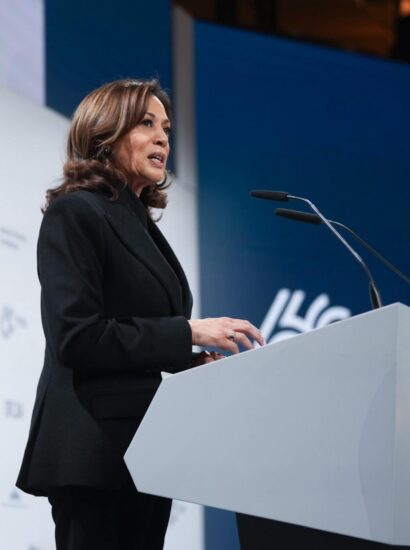
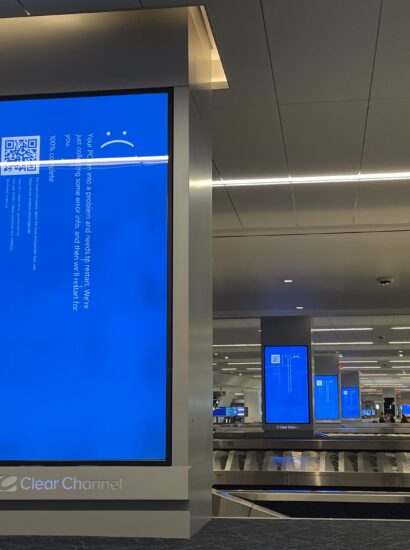
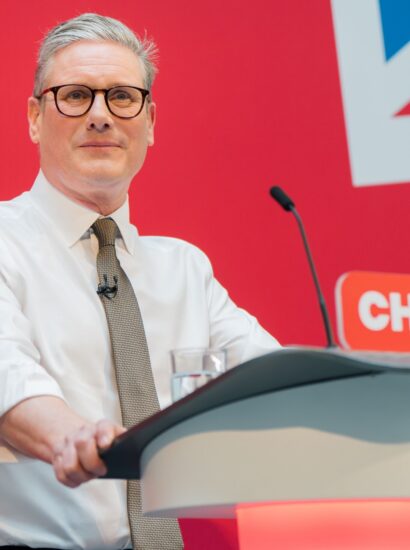
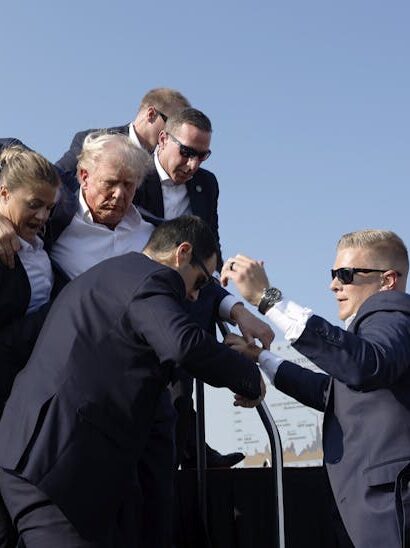


[…] hard-won rights as women or same-sex couples are under threat from the rise of radical Islamism, Islam’s spread, and how the radical woke left is enabling […]
[…] they also opposed to liberal Muslim movements, like Euro […]